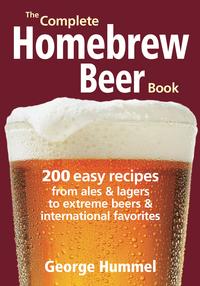Cracking the Barley Code: How the Free Library Helped Me Become a Homebrewer
By Daniel S.When I turned 21, I knew a few things about beer: it was generally the color of straw, it was carbonated, served cold, contained a mild amount of alcohol and I thought it tasted ok. Then something happened.
It started with Guinness: It was imported from Ireland. It was black. It wasn’t all that carbonated. It didn’t remind me much of what I had been calling beer. And I liked it.
Soon, I would walk into a deli or a bar and see all sorts of new terminology: hefewiezen (German style wheat beer), lambic (Belgian style fruit beer), India Pale Ale (a British beer brewed with extra high doses of hops). It seemed that beer came in flavors. And I wanted to try them all.
Soon I was a bit of a beer aficionado. I knew I liked all sorts of beers. I knew they could be drastically different from one another. I knew that the “flavors” were “styles” and usually came from a long brewing tradition in a particular region. I figured out that an ESB was an Extra Special Bitter, which is an English style of ale. What I still wanted to know was what made it “extra special.”
The reason I started homebrewing was that I wanted to know how beer works: where the flavors and the textures and the smells come from. I figured the best way to find out was to make some. I bought a kit from a homebrew store with the necessary ingredients and equipment to make beer. With the equipment came a single page of instructions: ten easy steps to making your own beer.
Well, it wasn’t that easy. But I did get beer. And it wasn’t too bad. I was pretty sure there was information I was missing. So I bought a book with lots of detailed instructions. And my beer got better. I got better at the brewing process, I bought better equipment, I asked lots of questions at the homebrew store and I read more books.
Since then the library has been a major part of my brewing process. I’ve read many books cover to cover and used countless more to research recipes. I’ve now brewed over 100 gallons of beer at home. I can’t say that they’ve all been what I thought they’d be, but every time I brewed I got beer and had a good time doing it.
If you are interested in how barley, hops, water and yeast end up as beer, check out some of our great books on the subject like The Complete Joy of Homebrewing by Charlie Papazian, Extreme Brewing by Sam Calagione,or Radical Brewing by Randy Mosher. You can also come to Parkway Central on August 31 at 7:30pm for a workshop with George Hummel. George is the owner of Home Sweet Homebrew, a homebrew supply store in Philadelphia, a journalist and the author of The Complete Homebrew Beer Book. We will raffle a copy of the book at the event!
Have a question for Free Library staff? Please submit it to our Ask a Librarian page and receive a response within two business days.

